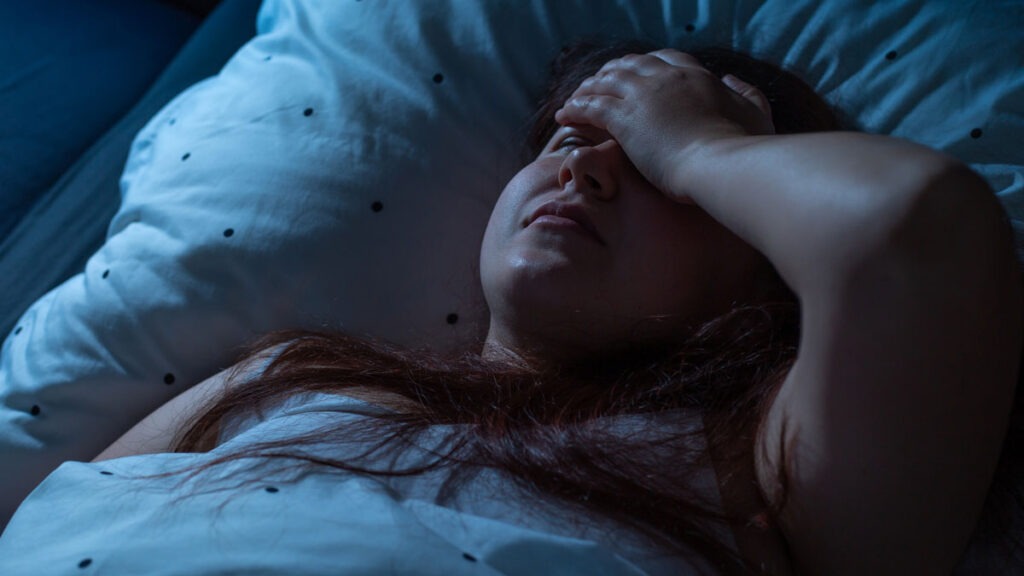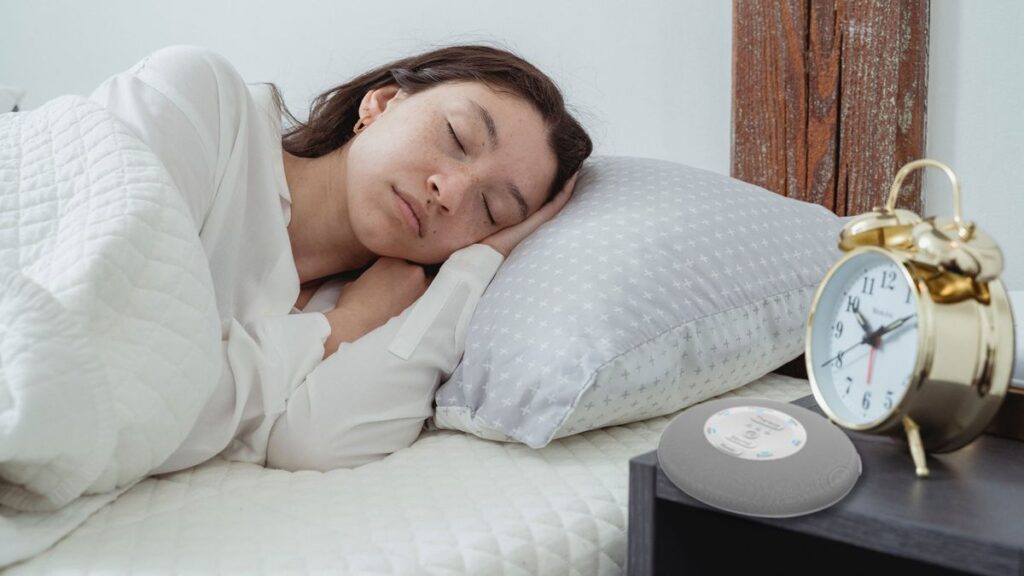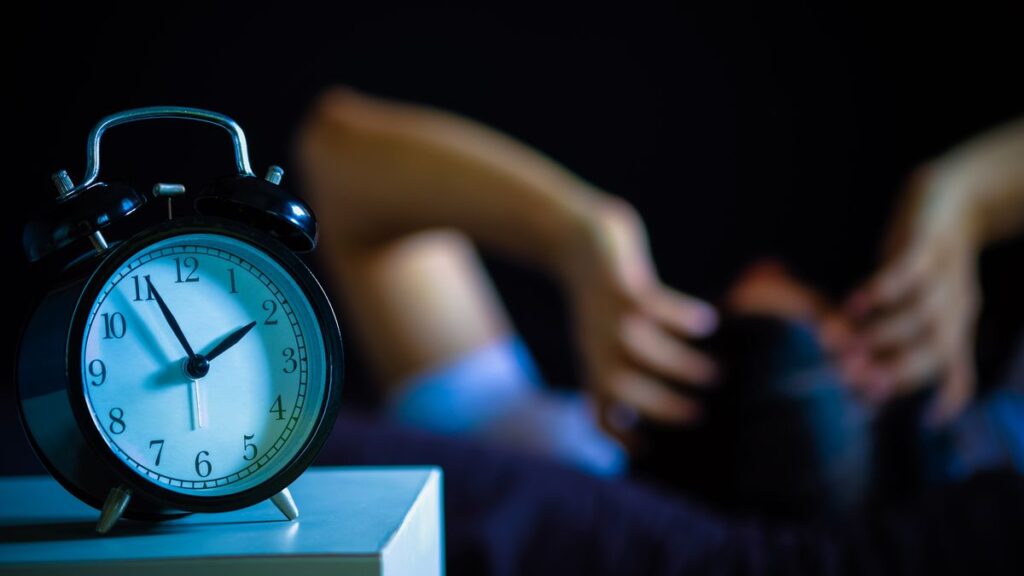- July 6, 2024
- Posted by: Henry Wixdek
- Category: Health

In Australia, the prevalence of insomnia is a top concern, affecting a significant portion of the
population across various age groups. Insomnia impairs quality of life and profoundly impacts
productivity and overall health. Understanding the importance of selecting the right sleep aid
can be crucial for those struggling with sleep disturbances. This is why, as a trusted Australian
Pharmacy, we are committed to guiding you through the process of choosing the most effective
and safe sleep aids, whether they are sleeping pills, sleeping tablets, or other forms of sleep
medication.
Understanding Insomnia
Types of Insomnia
Insomnia manifests in several forms, primarily categorised as acute or chronic, and can be
either primary or secondary. Acute insomnia often occurs temporarily due to stress or
environmental changes, while chronic insomnia persists for more extended periods. Mainly,
insomnia is not directly connected to any other health condition, whereas secondary insomnia is
associated with underlying issues such as medical conditions or mental health disorders.
Causes of Insomnia
Factors contributing to insomnia include psychological issues such as stress and anxiety,
physical health problems like chronic pain, and environmental disruptions. These disturbances
can significantly hinder a person’s ability to fall asleep or maintain sleep. Lifestyle factors such
as irregular sleep timetables, poor sleep hygiene, and excessive use of stimulants like caffeine
and nicotine also play a role.
Statistics on Insomnia in Australia
A considerable percentage of Australians report symptoms of insomnia, with many indicating
that it negatively affects their day-to-day activities and work performance. According to the
Sleep Health Foundation, around 33-45% of adults experience inadequate sleep, with insomnia
being a major contributing factor.

Choosing the Right Sleep Aid
Over-the-counter Solutions: For many, over-the-counter sleep medications provide a convenient and effective way to manage occasional sleeplessness. These include various sleeping pills and non-prescription sleeping tablets suitable for short-term use. Some popular options in Australia include:
OTC Sleep Medicine: Medications like Restavit and Sominex, which often contain antihistamines, can help induce sleep.
Natural Sleep Supplements: Options like melatonin and herbal remedies, such as Swisse Ultiboost Sleep and Nature’s Complete Sleep can serve as gentle sleep aids.
Prescription Sleep Aids
If your insomnia persists, consulting a healthcare professional for stronger sleep medications may be necessary. At Australian Pharmacy, we offer several prescription options, including:
● Alprazolam (Xanax) 1 mg and 2 mg: Effective for short-term relief of sleep disturbances.
● Zolpidem Ambien 10 mg and Belbien Zolpidem (Hemofarm) 10 mg: Known for helping patients fall asleep quickly.
● Zopiclone 7.5 mg and Zopiclone ACTAVIS 7.5 mg: Useful in treating insomnia by reducing night awakenings and improving sleep duration.
● Diazepam Valium Generic 10 mg and Diazepam ACTAVIS 10 mg: Often prescribed for those who need help staying asleep.
Making an Informed Decision
When choosing a sleep aid, consider the following:
Potential Side Effects: The side effects of OTC and prescription sleep aids.
Consider Non-Medical Alternatives: Lifestyle changes, such as improved sleep hygiene and cognitive behavioural therapy (CBT), can significantly help combat insomnia.
Various Sleep Aids and How They Work
Understanding the different types of sleep aids and how they work can help you make an informed decision when struggling with insomnia. This guide is tailored for an Australian audience, incorporating local statistics and references to ensure relevance.
Over-the-counter (OTC) Medications
OTC options such as sleeping pills over the counter and sleeping tablets over the counter include antihistamines and melatonin supplements. These can be effective for short-term relief but may not be suitable for long-term use.
Antihistamines
Antihistamines, found in products like Restavit and Sominex, are commonly used to treat allergies and induce drowsiness. They are often recommended for occasional sleeplessness but should not be relied upon regularly as they can lead to tolerance and side effects such as dry mouth and dizziness.
Melatonin Supplements
Melatonin supplements, like those found in Swisse Ultiboost Sleep, help regulate the sleep-wake cycle. They are handy for shift workers or those suffering from jet lag. According to the Therapeutic Goods Administration (TGA), is considered safe for short-term use but should be used cautiously over extended periods.
Prescription Medications
Prescription options include medications such as Alprazolam Xanax 1 mg, Belbien Zolpidem 10 mg, and Zopiclone 7.5 mg. These medicines should be taken under the guidance of a
healthcare professional.
Alprazolam (Xanax)
Alprazolam is a benzodiazepine that is effective for short-term relief of severe insomnia. It should be used with caution as it can lead to dependency and withdrawal symptoms.
Zolpidem (Belbien)
Zolpidem is a sedative-hypnotic that helps patients fall asleep quickly. It is often prescribed for
short-term use and is known to have fewer side effects compared to benzodiazepines.
Zopiclone
Zopiclone, available in 7.5 mg doses, treats chronic insomnia by reducing night awakenings and
improving sleep duration. To avoid the risk of dependency, it is essential to follow a doctor’s
prescription.

Natural Remedies and Supplements
Herbal supplements like valerian root and chamomile, with lifestyle changes in diet and exercise, can serve as effective sleep supplements for those looking for natural alternatives.
Valerian Root and Chamomile
Herbal remedies like valerian root and chamomile are popular for their calming effects. These
supplements are often used in tea or capsule form and are favoured for their minimal side
effects.
Lifestyle Changes
Regular exercise and a healthy diet can significantly improve sleep quality. The Sleep Health
foundation recommends maintaining a consistent sleep schedule and creating a relaxing sleep
routine to enhance sleep naturally.
Technological Solutions
Innovations like sleep apps and light therapy offer new ways to enhance sleep quality without, needing medication.
Sleep Apps
Sleep apps like Sleep Cycle and Calm provide guided meditations, sleep tracking, and
relaxation techniques. These apps can help identify sleep patterns and suggest improvements.
Light Therapy
It involves exposure to artificial light, which is like natural daylight. It is especially beneficial for those with circadian rhythm disorders. According to the Australasian Sleep Association, light therapy can help reset the internal clock, promoting better sleep.
How to Choose the Right Sleep Aid
Choosing the right sleep aid is crucial for ensuring effective treatment of insomnia and maintaining overall health. This guide will help Australian audiences make informed decisions about sleep aids, considering professional advice, underlying health conditions, and lifestyle alternatives.
Considering Underlying Health Conditions
Health Conditions and Medications
Your current health conditions and medications can influence the choice of sleep medication. It is essential to choose options that do not interact adversely with existing treatments. For instance, cardiovascular or mental health patients need to be particularly cautious. The Therapeutic Goods Administration (TGA) provides detailed information on drug interactions and contraindications, a valuable resource for ensuring safe medication choices.
Lifestyle and Natural Alternatives
Benefits of Lifestyle Adjustments
Before opting for the best sleeping pills or medicine, consider whether lifestyle adjustments
could alleviate your sleep issues. Most of the time, simple changes can make a significant
difference. The Sleep Health Foundation recommends practices such as maintaining a regular
sleep timetable, creating a comfortable sleep place, and reducing caffeine and alcohol intake as
effective strategies for improving sleep quality without needing medication.

Risks and Side Effects of Sleep Aids
Understanding the risks and side effects of sleep aids is crucial for making informed decisions about managing insomnia. Whether you are considering over-the-counter sleep medication or prescription sleeping pills, it’s essential to be aware of potential issues and consult with healthcare professionals as needed.
Common Side Effects
All sleep aids, including over-the-counter sleep medication and non-prescription sleeping pills, come with side effects. Being aware of these and discussing them with a pharmacist is vital.
Some common side effects include:
● Drowsiness During the Day: Many sleep aids can cause residual drowsiness the next day, affecting your ability to perform daily tasks safely.
● Dizziness: Feeling light-headed or dizzy is a common side effect, particularly with antihistamine-based sleep aids.
● Dry Mouth and Throat: This can be uncomfortable and lead to further sleep disturbances.
● Gastrointestinal Issues: Some users report nausea, constipation, or diarrhoea as side effects.
● Allergic Reactions: Although rare, some individuals may experience allergic reactions like rashes, itching, or swelling.
Dependency and Withdrawal
Particularly with the best sleeping tablets like Zopiclone ACTAVIS 7.5 mg, there is a risk of dependency. Over time, your body may rely on these medications to initiate and maintain sleep, leading to tolerance and increased dosage requirements.
Managing Dependency
To manage and mitigate dependency on sleep aids, consider the following strategies:
● Gradual Tapering: Slowly reducing the dosage under medical supervision can help minimise withdrawal symptoms.
● Behavioural Therapies: Cognitive-behavioural therapy for insomnia (CBT-I) is an effective treatment that doesn’t involve medication.
● Sleep Hygiene: Improving sleep hygiene by establishing a regular sleep schedule, creating a restful environment, and avoiding stimulants can support better sleep without medication.
Withdrawal Symptoms
Withdrawal symptoms can occur if sleep aids are discontinued abruptly. These may include:
● Rebound Insomnia: A temporary worsening of sleep issues when stopping the medication.
● Anxiety and Irritability: Mood changes can occur as the body adjusts.
● Physical Symptoms: Nausea, sweating, and tremors are possible during withdrawal.
Expert-Approved Sleep Solutions!
Choosing the right sleep aid requires careful consideration and professional guidance. Our Australian Pharmacy is dedicated to providing the most effective and safe options for managing insomnia. We encourage you to address the root causes of your sleep disturbances and seek the best possible solutions tailored to your needs. For more information and support on managing insomnia, visit reputable Australian sleep research institutes and consult with national health services. We are here to help you find the best sleep helper and regain the restful night’s sleep you deserve.
